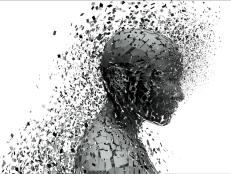Articles
Showing 301 - 315 of 2,629 results
Curiosity Daily Podcast: How Scientists Teleported Fish Behavior
Learn about why cancer is stranger than we think and how scientists have “teleported” the behavior of real fish into robot fish.
Curiosity Daily Podcast: Parents Rarely Pass Their Politics to Their Kids, Source of Peanut Allergies Found in the Gut, and Why Stars Don’t Make the Night Sky Bright
Learn about the perception-adoption model, which says that most parents don’t pass their political ideology to their kids; how researchers found the source of peanut allergies in the human gut; and Olbers’ Paradox, which asks why the night sky is so dark if stars are so bright
Curiosity Daily Podcast: Analog and Digital Media Preservation (w/ Damon Krukowski) and the Wagon Wheel Illusion
Learn about how we preserve analog and digital audio (and other media) with special guest Damon Krukowski, who is a musician, writer, and author of the new book “Ways of Hearing.” We’ll also answer a listener question about why quickly rotating objects seem to rotate in the opposite direction.
Curiosity Daily Podcast: How Badly We Need to Feel Socially Connected (w/ Vivian Zayas) and Work Commute Tips
Learn about the surprising power behind our need to feel socially connected, with guest Vivian Zayas, Director of the Personality, Attachment, and Control Laboratory at Cornell University. Plus, learn about how to make your commute a little happier.
Does Your Body Really Replace Itself Every 7 Years?
The human body is constantly renewing itself.
Curiosity Daily Podcast: Finding Dark Energy, Coelacanth Revival, Words of Persuasion
Learn about how we may have found dark energy; a prehistoric coelacanth return; and a trick for getting what you want.
Curiosity Daily Podcast: Learn When We’ll Meet Aliens, Hear Singing Sand Dunes, and Understand Your Roommates
Cody Gough and Ashley Hamer discuss the following stories from Curiosity.com to help you learn something new in just a few minutes:
Curiosity Daily Podcast: Measuring Your FOMO, Tashirojima “Cat Island,” and the Man Who Put His Head Inside A Particle Accelerator (and Survived!)
Learn about the real effects of FOMO, and how you can measure your fear of missing out; the story of Anatoli Bugorski, a Russian scientist who put his head inside a particle accelerator and survived; and the Japanese “Cat Island” of Tashirojima, where there are more cats than people.
Curiosity Daily Podcast: How Humans Can Outsmart AI (w/ Unanimous AI), Pre-Big Bang Existence, and Beating Procrastination
Learn how humans can beat artificial intelligence by tapping into the wisdom of swarms (with some help from Dr. Louis Rosenberg, CEO of Unanimous AI). Plus: learn about what came before the Big Bang, and get a 5-minute hack for beating procrastination.
The Jacuzzi of Despair Is a Deadly Lake Within the Gulf of Mexico
This underwater brine pool in the Gulf of Mexico is no vacation spot.
Curiosity Daily Podcast: Building Healthier Cities (w/ Dr. Aruni Bhatnagar), 3D-Printing a Nuclear Reactor Core, and Why Spaghetti Breaks in Three
Learn what environmental cardiology has taught us about how we should live, with help from Dr. Aruni Bhatnagar. Then, you’ll learn about the world’s first 3D-printed nuclear reactor core; and why spaghetti always breaks in three.
Kaindy Lake Is a Ghostly Underwater Forest
A landslide a century ago created this bizarre scenery.
Curiosity Daily Podcast: Hacking Earth to Fight Climate Change
Learn about the likelihood that we all live in a computer simulation. Then, author Thomas Kostigen explains how geoengineering might help cool the planet and save the world.
Curiosity Daily Podcast: Medical Value of Mystical Experiences and the Neutron’s Lifetime
Learn about why scientists study “mystical experiences” in psychedelics; and precisely measuring a neutron’s lifetime.
Curiosity Daily Podcast: The Known Solar System Just Got Bigger
Learn about how mice seem to feel each other’s pain; why our known solar system just got a little bigger thanks to “Farfarout” 2018 AG37; and the history of quinine, the malaria cure that eventually led to the gin and tonic.











